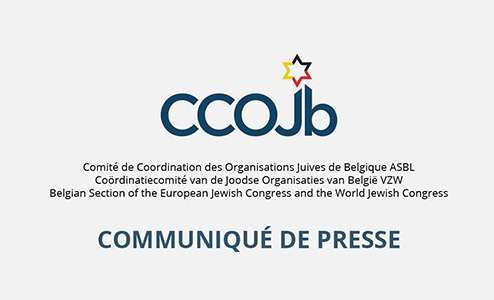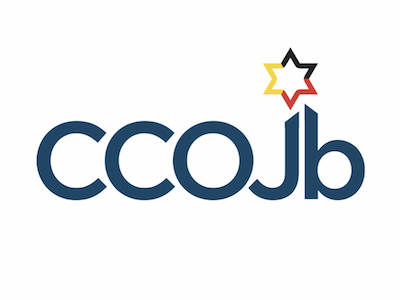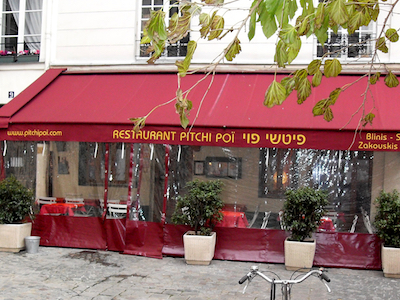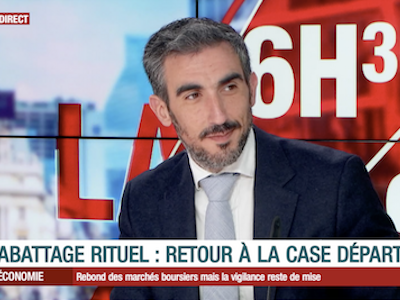Abattage religieux

(English below - Nederlands hieronder)
Abattage religieux : Le CCOJB plaide pour les droits fondamentaux, et se déclare confiant
Bruxelles, 8 juillet 2020
La Cour de justice de l'Union européenne (CJUE) a entendu ce matin les parties sur la question de la légalité des mesures adoptées en Wallonie et en Flandre en matière d'abattage, dont le résultat est l'interdiction indirecte de l'abattage religieux dans ces régions. Le Comité de Coordination des Organisations Juives de Belgique (CCOJB) est confiant.
Le CCOJB, partie requérante à cet important contentieux, a répondu aux questions de la CJUE en ces termes:
- Non, la marge de manœuvre laissée aux Etats Membres ne leur permet pas de vider de tout effet utile l'exception prévue par le droit européen en faveur de l'abattage religieux pour autant que celui-ci s'effectue dans un abattoir agréé. En d'autres termes, la réglementation de l'abattage religieux est possible, mais pas l'interdiction pure et simple.
- Une autre interprétation violerait la Charte des droits fondamentaux de l'Union européenne et la restriction ne serait ni adéquate, ni cohérente, ni proportionnée à l'objectif poursuivi.
- La possibilité théorique d'une importation ne suffit pas à justifier l'interdiction pure et simple. Si la production est interdite, il est évident que l'offre, et la sécurité de l'approvisionnement, est limitée. On le constate d'autant plus aujourd'hui.
Yohan Benizri, président du CCOJB, et vice-président du Congrès juif européen et du Congrès juif mondial, a déclaré:
"Il serait surprenant, à la lecture d'autres arrêts de la Cour de Justice et de l'audience aujourd'hui, que nous n'obtenions pas gain de cause dans cette affaire. Encore une fois, il ne s'agit pas d'opposer le bien-être animal aux pratiques religieuses, comme d'aucuns souhaitent le faire croire. Nous sommes sensibles au bien-être animal, mais l'interdiction indirecte de l'abattage religieux en Belgique est contraire au droit européen, et constitue une violation de nos droits fondamentaux. Cette interdiction est indigne d'une société démocratique, dont la qualité se mesure à la manière dont elle promeut ses valeurs en respectant ses minorités."
En moyenne, la CJUE répond aux questions préjudicielles en 15 mois (pour rappel, la question posée à la CJUE par la Cour constitutionnelle date d'avril 2019). Il aurait donc été envisageable d'obtenir une réponse avant la fin de l'été. Cela étant, en tenant compte du report d'audience et de la crise sanitaire actuelle, nous ne pouvons espérer une réponse qu'à l'automne 2020.
***
-English-
Religious Slaughter - The Belgian Federation of Jewish Organizations argues for fundamental rights and is optimistic
June 8th, 2020
The Court of Justice of the European Union (CJEU) held a hearing this morning in Case C-336/19 regarding the legality of measures adopted by two Belgian regions, which prohibit religious slaughter. The Belgian Federation of Jewish Organizations (CCOJB), as applicant in the main proceedings, is optimistic.
The CCOJB addressed the CJEU's questions as follows:
- No, the margin of discretion left to Member States does not permit to make the exception for religious slaughter meaningless, to the extent it happens in an approved slaughterhouse. In other words, religious slaughter may be regulated but not prohibited.
- An opposite conclusion would violate the EU Charter of Fundamental Rights and the restriction to religious freedom would not be adequate, consistent or proportionate.
- The possibility to import kosher meat from other countries does not justify the prohibition. If production is prohibited in a country, the overall supply, and the security of that supply, is restricted. The current sanitary crisis offers a striking example.
Yohan Benizri, the president of the CCOJB, and vice president of the European Jewish Congress and the World Jewish Congress, stated:
"It would be surprising, in light of the case law and the hearing today, that the Court would not follow our reasoning in this case. Again, those who argue that this is a choice between animal welfare and religious freedom are missing the point. We are very sensitive to animal welfare considerations, but the prohibition of religious slaughter in two Belgian regions is incompatible with EU law, and a violation of our fundamental rights. This prohibition is unbecoming in a democratic society, which heath is measured in light of the way it pursues its highest values while respecting its minorities."
The Court's ruling is not expected before the fall. The Advocate General's opinion, which does not bind the Court, will be delivered on 10 September 2020.
***
-Nederlands-
Religieus slachten - Het Coördinatiecomité van Joodse Organisaties van België komt op voor de fundamentele rechten en is optimistisch
8 juli 2020
Het Europese Hof van Justitie hield deze voormiddag een zitting in zaak C-336/19 over de geldigheid van een verbod op religieus slachten dat twee Belgische regio’s hebben uitgevaardigd. Het Coördinatiecomité van Joodse Organisaties van België (CCOJB), verzoekende partij in het hoofdgeding, is optimistisch.
Het CCOJB beantwoordde de vragen van het Hof als volgt:
1. Nee, de beoordelingsmarge die de lidstaten hebben laat hen niet toe om de uitzondering voor religieus slachten betekenisloos te maken, voor zover het slachten plaatsvindt in een erkend slachthuis. Met andere woorden, religieus slachten mag gereguleerd worden, maar niet verboden.
- Het tegendeel beweren zou ingaan tegen het Handvest van de Grondrechten van de Europese Unie, omdat dit de godsdienstvrijheid zou inperken op een manier die niet adequaat, consistent en proportioneel is.
- De mogelijkheid om koosjer vlees in te voeren uit andere landen kan het verbod niet rechtvaardigen. Als de productie van koosjer vlees in een land wordt verboden, dan wordt het totale aanbod beperkt en is het aanbod niet langer verzekerd. De huidige gezondheidscrisis toont dit op treffende wijze aan.
Yohan Benizri, voorzitter van het CCOJB, en vicevoorzitter van het Europees Joods Congres en het Joods Wereldcongres, verwoordt het als volgt:
“Het zou verbazen als het Hof onze redenering niet zou volgen in deze zaak, gelet op zijn rechtspraak en gelet op de zitting van vandaag. Nogmaals, degenen die beweren dat dit een keuze is tussen dierenwelzijn en godsdienstvrijheid slaan de bal mis. We zijn zeer bekommerd om het welzijn van dieren, maar het verbod op religieus slachten in twee Belgische regio’s is niet verenigbaar met het Unierecht, en vormt een schending van onze fundamentele rechten. Dit verbod hoort niet thuis in een democratische samenleving, waarvan de veerkracht wordt afgemeten aan de wijze waarop zij haar belangrijkste waarden nastreeft, zonder het respect voor haar minderheden uit het oog te verliezen.”
Het arrest van het Hof wordt ten vroegste in de herfst verwacht. De conclusie van de Advocaat-Generaal, die goed voorbereid was en vele pertinente vragen stelde tijdens de zitting, wordt normaal op 10 september 2020 uitgesproken. Die conclusie bindt het Hof echter niet.




